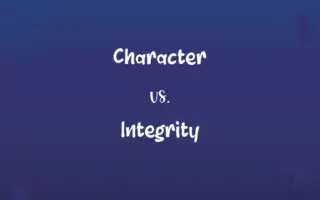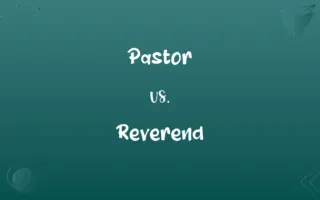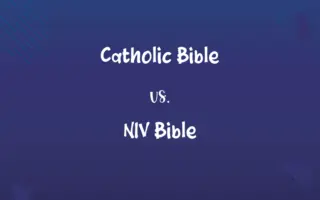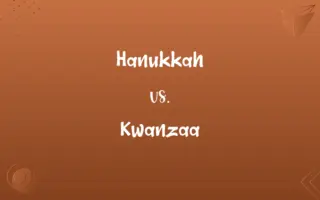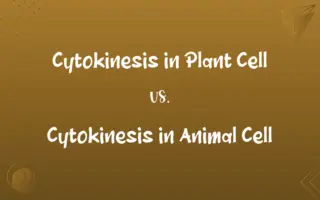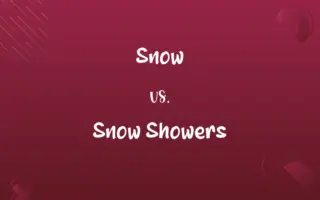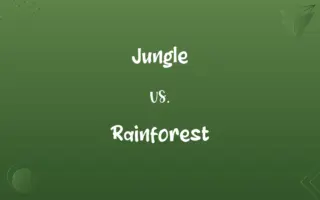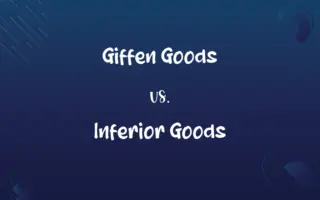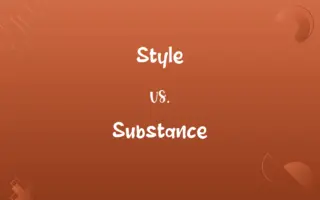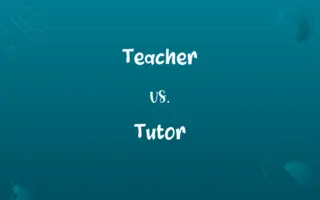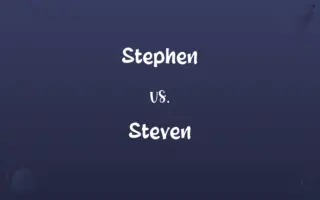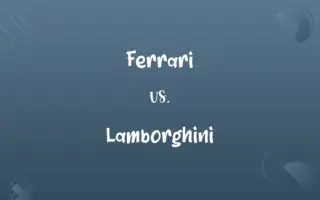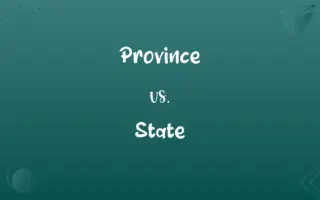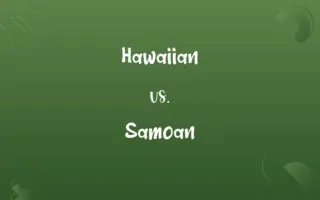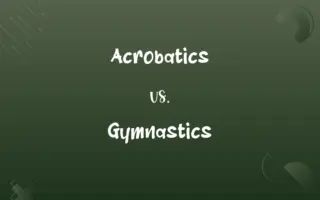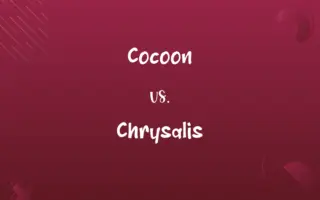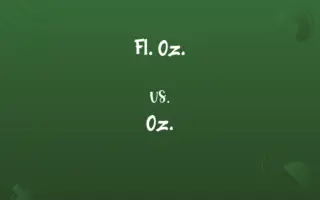Completely vs. Totally: Know the Difference

By Shumaila Saeed || Updated on December 25, 2023
"Completely" often conveys a sense of thoroughness or entirety in a specific aspect, while "totally" implies absolute or full extent in a more general sense.
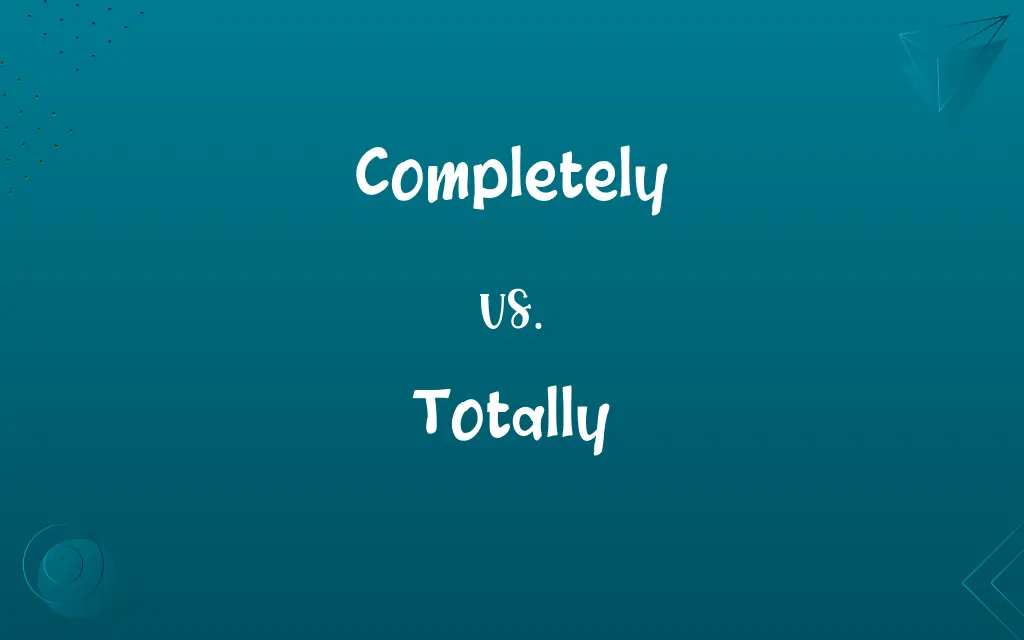
Key Differences
"Completely" is typically used to emphasize the thorough completion or fullness in one specific aspect or dimension. It often suggests that nothing is left out in that particular regard. On the other hand, "totally" conveys an idea of wholeheartedness or entirety, often encompassing all aspects or dimensions without restriction.
Shumaila Saeed
Nov 20, 2023
In terms of usage, "completely" is frequently applied to situations where the focus is on the completeness of an action or process. It implies that every part or detail has been attended to. "Totally," however, is broader, often used to express an absolute state or condition, extending beyond the confines of a single aspect.
Shumaila Saeed
Nov 20, 2023
"Completely" can also imply a change from one state to another, indicating a thorough transition. For example, renovating a house "completely" suggests a comprehensive overhaul. In contrast, "totally" often points to the overall nature or extent of something, such as being "totally convinced," which implies conviction in every way.
Shumaila Saeed
Nov 20, 2023
The nuances in emotional or subjective contexts differ as well. Saying someone is "completely happy" might emphasize happiness in a specific context or moment, whereas "totally happy" could imply an all-encompassing, unreserved happiness.
Shumaila Saeed
Nov 20, 2023
In summary, while both "completely" and "totally" often function interchangeably in colloquial usage, "completely" tends to focus on thoroughness or entirety in a specific area, whereas "totally" implies a more general, all-encompassing extent or degree.
Shumaila Saeed
Nov 20, 2023
ADVERTISEMENT
Comparison Chart
Usage Context
Emphasizes thoroughness in an action
Expresses an absolute state or condition
Shumaila Saeed
Nov 20, 2023
Implication of Change
Suggests a complete transition
Implies an overall nature or extent
Shumaila Saeed
Nov 20, 2023
ADVERTISEMENT
Completely and Totally Definitions
Completely
In a thorough or comprehensive manner.
The room was completely renovated to look modern.
Shumaila Saeed
Nov 20, 2023
Totally
Emphasizing an overall or all-encompassing state.
The team was totally prepared for the competition.
Shumaila Saeed
Nov 20, 2023
Completely
Indicating a full or wholehearted state in a particular regard.
The audience was completely captivated by the performance.
Shumaila Saeed
Nov 20, 2023
Totally
Absolutely or wholly, without exception.
The statement was totally false.
Shumaila Saeed
Nov 20, 2023
Completely
To the utmost degree or extent in one aspect.
She was completely exhausted after the marathon.
Shumaila Saeed
Nov 20, 2023
ADVERTISEMENT
Totally
Entirely, in every aspect or regard.
She was totally unaware of the surprise party.
Shumaila Saeed
Nov 20, 2023
Completely
Emphasizing totality within a specific context.
He completely understood the math problem.
Shumaila Saeed
Nov 20, 2023
Totally
Used to express an unequivocal or absolute nature.
He was totally committed to the project.
Shumaila Saeed
Nov 20, 2023
Completely
Having all necessary or normal parts, components, or steps; entire
A complete medical history.
A complete set of dishes.
Shumaila Saeed
Oct 19, 2023
Completely
(Botany) Having all principal parts, namely, the sepals, petals, stamens, and pistil or pistils. Used of a flower.
Shumaila Saeed
Oct 19, 2023
Totally
To the fullest extent or degree.
They've totally demolished the bank on Main Street.
Shumaila Saeed
Oct 19, 2023
Completely
Having come to an end; concluded
The renovation of the kitchen is complete.
Shumaila Saeed
Oct 19, 2023
Totally
To a complete degree or to the full or entire extent (`whole' is often used informally for `wholly');
He was wholly convinced
Entirely satisfied with the meal
It was completely different from what we expected
Was completely at fault
A totally new situation
The directions were all wrong
It was not altogether her fault
An altogether new approach
A whole new idea
Shumaila Saeed
Oct 19, 2023
Totally
Reflecting an unreserved or complete extent.
The movie was totally different from the book.
Shumaila Saeed
Nov 20, 2023
Completely
To make whole, with all necessary elements or parts
A second child would complete their family. Fill in the blanks to complete the form.
Shumaila Saeed
Oct 19, 2023
Completely
(Football) To throw (a forward pass) that is caught in bounds by a receiver.
Shumaila Saeed
Oct 19, 2023
Completely
(manner) In a complete manner
Please completely fill in the box for your answer, using a number 2 pencil.
Shumaila Saeed
Oct 19, 2023
Completely
(degree) To the fullest extent or degree; totally.
He is completely mad.
Shumaila Saeed
Oct 19, 2023
Completely
To a complete degree or to the full or entire extent (`whole' is often used informally for `wholly');
He was wholly convinced
Entirely satisfied with the meal
It was completely different from what we expected
Was completely at fault
A totally new situation
The directions were all wrong
It was not altogether her fault
An altogether new approach
A whole new idea
Shumaila Saeed
Oct 19, 2023
Completely
So as to be complete; with everything necessary;
He had filled out the form completely
The apartment was completely furnished
Shumaila Saeed
Oct 19, 2023
Completely
Fully, with nothing left out.
The book was completely rewritten for the new edition.
Shumaila Saeed
Nov 20, 2023
Repeatedly Asked Queries
Can "totally" express surprise?
Yes, it's often used to emphasize unexpectedness.
Shumaila Saeed
Nov 20, 2023
Are "completely" and "totally" interchangeable?
Often, but not always; their nuances can differ based on context.
Shumaila Saeed
Nov 20, 2023
Can "completely" imply gradual change?
Yes, it can imply a process reaching completion.
Shumaila Saeed
Nov 20, 2023
Is "totally" appropriate in academic writing?
It can be, though "completely" might be preferred for precision.
Shumaila Saeed
Nov 20, 2023
Is "totally" more emphatic than "completely"?
"Totally" can be more emphatic in conveying an absolute state.
Shumaila Saeed
Nov 20, 2023
Is "completely" used in formal writing?
Yes, it's suitable for both formal and informal contexts.
Shumaila Saeed
Nov 20, 2023
Can "completely" refer to physical completeness?
Yes, it can refer to physical or metaphorical completeness.
Shumaila Saeed
Nov 20, 2023
Does "completely" imply a final state?
Often, it implies a final or conclusive state in a process.
Shumaila Saeed
Nov 20, 2023
Does "completely" focus on details?
Yes, it often emphasizes thoroughness in specific aspects.
Shumaila Saeed
Nov 20, 2023
Can "completely" be used in emotional contexts?
Yes, it's often used to describe emotions or states of mind.
Shumaila Saeed
Nov 20, 2023
Is "completely" stronger than "partially"?
Yes, it implies a higher degree of completeness than "partially."
Shumaila Saeed
Nov 20, 2023
Does "totally" always mean 100%?
In most contexts, it implies a full, 100% extent.
Shumaila Saeed
Nov 20, 2023
Is "completely" used in expressions of certainty?
Yes, it often expresses certainty or decisiveness.
Shumaila Saeed
Nov 20, 2023
Does "totally" have a colloquial usage?
Yes, it's commonly used colloquially for emphasis.
Shumaila Saeed
Nov 20, 2023
Does "totally" convey a sense of entirety?
Yes, it conveys an overall, comprehensive sense.
Shumaila Saeed
Nov 20, 2023
Is "totally" effective for exaggeration?
Yes, it can be used for rhetorical or exaggerated effect.
Shumaila Saeed
Nov 20, 2023
Can "totally" be used in negative contexts?
Yes, it can be used to emphasize negative states or conditions.
Shumaila Saeed
Nov 20, 2023
Is "totally" used to agree strongly?
Yes, it's often used for strong agreement or confirmation.
Shumaila Saeed
Nov 20, 2023
Can "completely" denote a thorough understanding?
Yes, it often implies a deep or thorough understanding.
Shumaila Saeed
Nov 20, 2023
Can "completely" signify a clean break?
Yes, it can imply a complete separation or end.
Shumaila Saeed
Nov 20, 2023
Share this page
Link for your blog / website
HTML
Link to share via messenger
About Author
Written by
Shumaila SaeedShumaila Saeed, an expert content creator with 6 years of experience, specializes in distilling complex topics into easily digestible comparisons, shining a light on the nuances that both inform and educate readers with clarity and accuracy.
